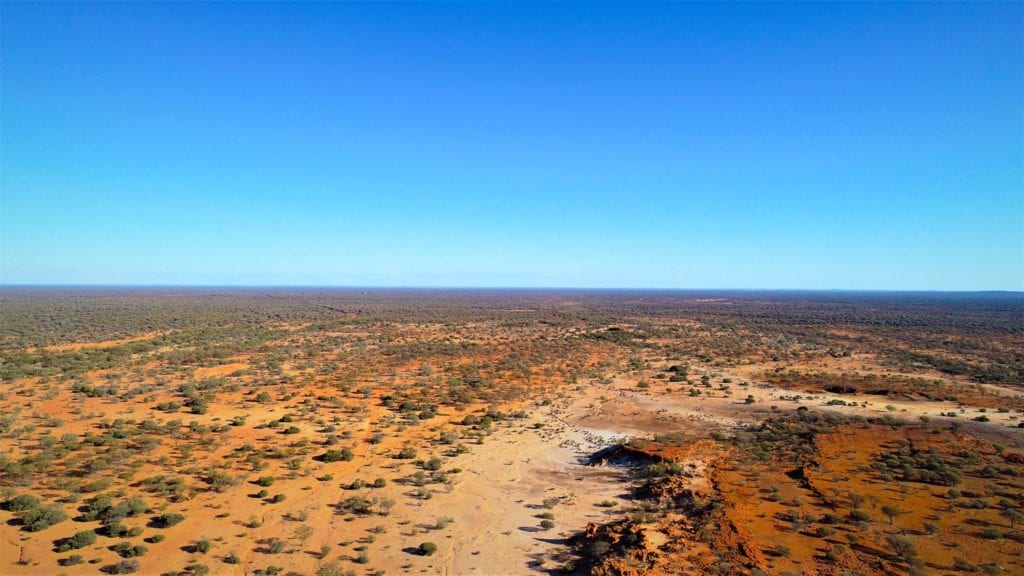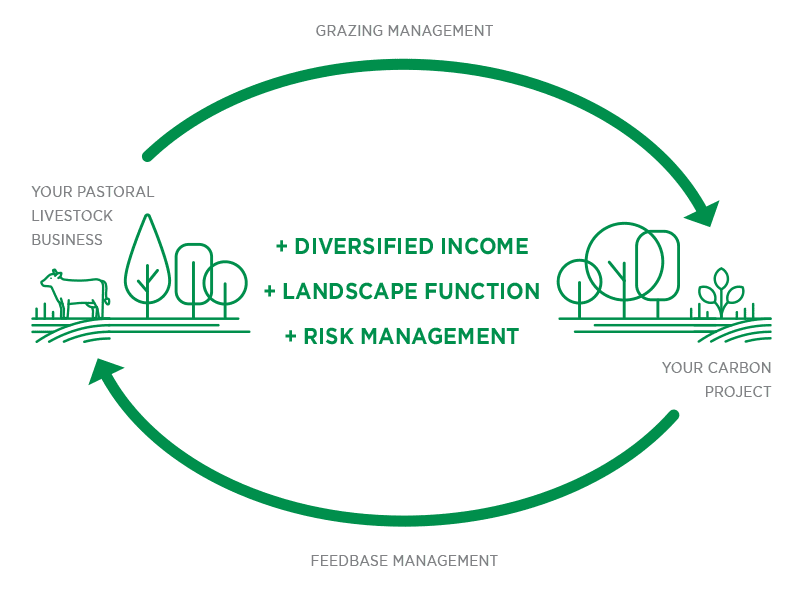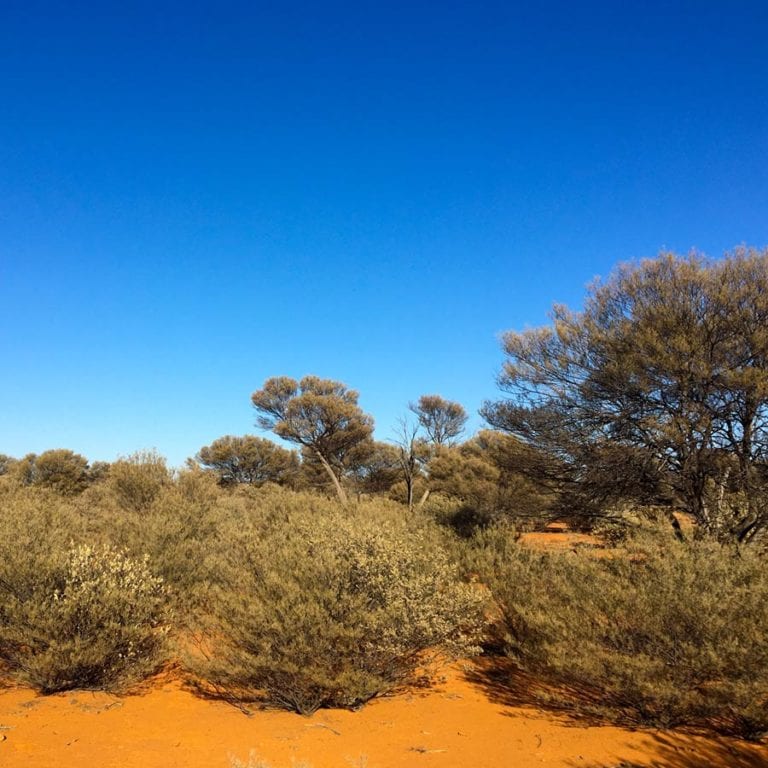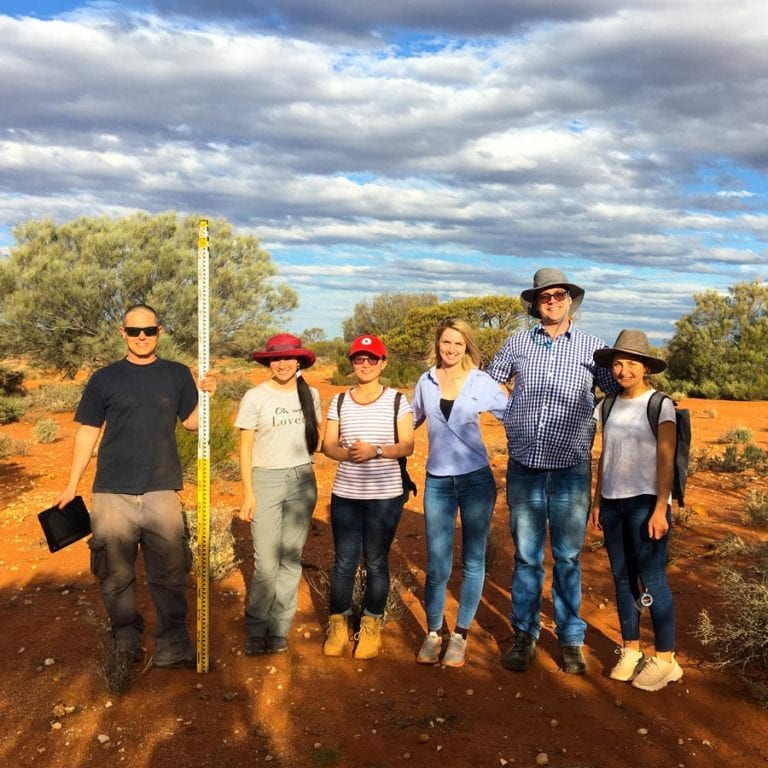Improve your natural capital by storing carbon in biomass.
Manage regeneration of vegetation and maintain permanent native forests on land that integrates with your current enterprises, enhancing your business and landscape.
Increase native vegetation,
increase landscape function,
increase business resiliance.
The human-induced regeneration (HIR) method has been closed for project registrations. The human-induced regeneration of a permanent even-aged native forest (HIR) method sunsetted on 1 October 2023. This means that new projects can no longer be registered under the method. Projects that started their crediting period before the method expired aren’t affected. They’ll continue for the duration of their crediting period.
An HIR project is based on adopting management practices that reduce the suppression of regenerating native vegetation. The new management activities are designed to ensure the regeneration attains forest cover, defined as a species mix with the ability to reach at least 2m tall and at least 20% canopy cover, assessed at a scale of 0.2 hectares. Not all vegetation or land systems are capable of reaching forest cover, so an important role of Select Carbon is to accurately identify the areas of potential within a property.
The HIR method uses the Full Carbon Accounting Model (FullCAM) to estimate sequestered carbon, and is complemented by remote sensing data, GIS techniques and on-ground measurements and monitoring. Select Carbon has skilled teams in pastoral management, remote sensing, and field monitoring.

HIR Management
Activities to action a HIR Project
An HIR carbon project is underpinned by a mixture of management activities that encourage and allow native vegetation to thrive in the landscape. Similarly, the management options enhance your existing agricultural or pastoral enterprises and improve business resilience. The following activities are some of the suite of options you could implement.
Control Grazing Pressure - Managing the timing and extent of grazing in the project area to ensure continuation of native regrowth. Livestock management is both a production system in its own right, but also a tool for managing your landscape and vegetation. Focusing on the management of your livestock and practice change creates the opportunity for synergistic outcomes to production goals, landscape function and your own values.
The control or removal of plant species not native to the area can encourage further growth of the native vegetation that is relevant to an HIR project.
Ceasing the mechanical destruction or suppression of native regrowth, if the vegetation has the potential to grow and meet the definition of forest cover. This increases carbon storage and generation of ACCUs.
The potential to diversify income, assist with risk mitigation and improve landscape function and resilience


Economic Benefits
Increased Business Flexibility and Income Diversity
Well-managed regeneration projects have the potential to generate environmental and socio- economic benefits, including dependable new income that can be reinvested to improve farm productivity and environmental sustainability. HIR has provided a source of income to landholders that enables them to diversify their activities and manage their land more sustainably.
Complete holistic system
Landscape Function
Our clients have reported improved landscape function within the HIR project areas. The projects provide an opportunity to improve the health of their soils, reduce pests and weeds, aid in productivity gains and generally increase the sustainability of their farms or stations. This holistic view on sustainability factors leads to the long-term goal of improved function and resilience within the landscape.


HIR has provided a source of income to landholders that enables them to diversify their activities and manage their land more sustainably.
Getting Started
As an industry expert in developing HIR projects, Select Carbon assists in the design and establishment of compliant HIR projects.
Furthermore, with on-the-ground experience of projects and production we support you through the entire project, including management requirements, and implementation. If the description of these activities align with your plans for the future, please contact Select Carbon to discuss an assessment for participating in a HIR project.
Still got Questions?
If you have a question about something that isn’t covered here, you can view our FAQ’s or send an inquiry through our contact form.
